Related Research Articles
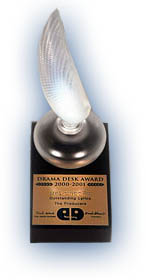
The Drama Desk Award is an annual prize recognizing excellence in New York theatre. First bestowed in 1955 as the Vernon Rice Award, the prize initially honored Off-Broadway productions, as well as Off-off-Broadway, and those in the vicinity. Following the 1964 renaming as the Drama Desk Awards, Broadway productions were included beginning with the 1968–69 award season. The awards are considered a significant American theater distinction.
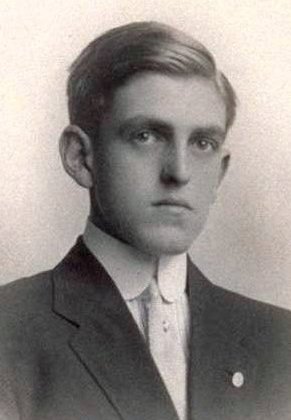
Sidney Coe Howard was an American playwright, dramatist and screenwriter. He received the Pulitzer Prize for Drama in 1925 and a posthumous Academy Award in 1940 for the screenplay for Gone with the Wind.

Sam Levene was a Russian-American Broadway, films, radio, and television actor and director. In a career spanning over five decades, he appeared in over 50 comedy and drama theatrical stage productions. He also acted in over 50 films across the United States and abroad.
Sam Prideaux Robards is an American actor. He is best known for his film roles in American Beauty (1999) and A.I. Artificial Intelligence (2001). For his performance in the Broadway production of The Man Who Had All the Luck, he received a nomination for the Tony Award for Best Featured Actor in a Play.

The Neil Simon Theatre, originally the Alvin Theatre, is a Broadway theater at 250 West 52nd Street in the Theater District of Midtown Manhattan in New York City. Opened in 1927, the theater was designed by Herbert J. Krapp and was built for Alex A. Aarons and Vinton Freedley. The original name was an amalgamation of Aarons's and Freedley's first names; the theater was renamed for playwright Neil Simon in 1983. The Neil Simon has 1,467 seats across two levels and is operated by the Nederlander Organization. Both the facade and the auditorium interior are New York City landmarks.

The August Wilson Theatre is a Broadway theater at 245 West 52nd Street in the Theater District of Midtown Manhattan in New York City. Opened in 1925, the theater was designed by C. Howard Crane and Kenneth Franzheim and was built for the Theatre Guild. It is named for Pulitzer Prize-winning playwright August Wilson (1945–2005). The August Wilson has approximately 1,225 seats across two levels and is operated by Jujamcyn Theaters. The facade is a New York City designated landmark.

The Shubert Theatre is a Broadway theater at 225 West 44th Street in the Theater District of Midtown Manhattan in New York City. Opened in 1913, the theater was designed by Henry Beaumont Herts in the Italian Renaissance style and was built for the Shubert brothers. Lee and J. J. Shubert had named the theater in memory of their brother Sam S. Shubert, who died in an accident several years before the theater's opening. It has 1,502 seats across three levels and is operated by The Shubert Organization. The facade and interior are New York City landmarks.

Street Scene is an American opera by Kurt Weill (music), Langston Hughes (lyrics), and Elmer Rice (book). Written in 1946 and premiered in Philadelphia that year, Street Scene is based on the Pulitzer Prize-winning 1929 play of the same name by Rice.

The Belasco Theatre is a Broadway theater at 111 West 44th Street, between Seventh Avenue and Sixth Avenue, in the Theater District of Midtown Manhattan in New York City. Originally known as the Stuyvesant Theatre, it was built in 1907 and designed by architect George Keister for impresario David Belasco. The Belasco Theatre has 1,016 seats across three levels and has been operated by The Shubert Organization since 1948. Both the facade and interior of the theater are New York City landmarks.

The Stephen Sondheim Theatre, formerly Henry Miller's Theatre, is a Broadway theater at 124 West 43rd Street in the Theater District of Midtown Manhattan in New York City. Owned by the Durst Organization and managed by the Roundabout Theatre Company, the modern 1,055-seat theater opened in 2009 at the base of the Bank of America Tower. The current theater is mostly underground and was designed by Cookfox, architects of the Bank of America Tower. It retains the landmarked facade of the original Henry Miller's Theatre, which was built in 1918 by Henry Miller, the actor and producer.

Jujamcyn Theaters LLC, formerly the Jujamcyn Amusement Corporation, is a theatrical producing and theatre-ownership company in New York City. For many years Jujamcyn was owned by James H. Binger, former Chairman of Honeywell, and his wife, Virginia McKnight Binger. The organization is now held by its president, Jordan Roth, and president emeritus, Rocco Landesman.
Dream Girl is a 1945 two-act comedy by Elmer Rice, with a large cast, multiple sets, and quick pacing. It depicts a day in the life of a daydreaming bookstore manager, whose vivid fantasies form much of the play's action. The work makes great demands on the actress playing this part, as she is on stage constantly, must make costume and mood changes while jumping between sets, and delivers long soliloquies and a Shakespearean speech. According to some reviewers, her spoken lines were the longest female part known up to that time, nearly as long as Hamlet. The dream fantasies prompted comparison to the short story "The Secret Life of Walter Mitty", but critics at the time more often suggested the play Lady in the Dark as an influence.
Broadway Rose gained notoriety in the 1940s as a panhandler in the Broadway Theater District of New York City.
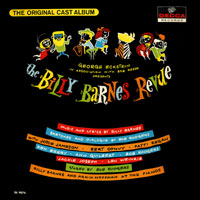
The Billy Barnes Revue is a 1959 musical comedy revue with music and lyrics by Billy Barnes and sketches by Bob Rodgers. The revue premiered in Los Angeles in 1959 and went on to be produced both on Broadway and Off Broadway.
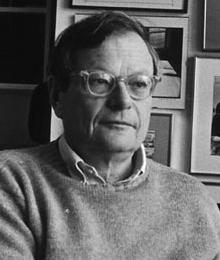
Samuel Charles Cohn was an American talent agent at International Creative Management, a firm he helped create, in the borough of Manhattan in New York City.
David Anthony Stuart Atkinson was a Canadian baritone and New York Broadway actor/singer. Most of his career was spent performing in musicals and operettas in New York City from the late 1940s through the early 1970s, although he did appear in some operas and made a few television appearances. In 1952 he created the role of Sam in the world premiere of Leonard Bernstein's Trouble in Tahiti. From 1956-1962 he was a leading performer at the New York City Opera where he starred in several musicals and appeared in the world premieres of several English language operas. His greatest success on the stage came late in his career: the role of Cervantes in Man of La Mancha which he portrayed in the original Broadway production, the 1968 national tour, and in the 1972 Broadway revival.
Love in E-Flat is a 1967 comedy play by Norman Krasna.
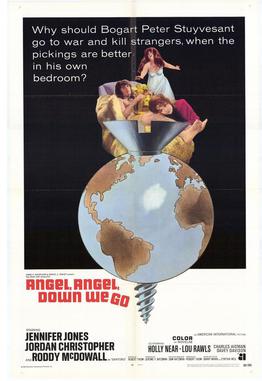
Angel, Angel, Down We Go, also known as Cult of the Damned, is a 1969 American film directed by playwright and screenwriter Robert Thom, his sole directorial credit. Thom based his screenplay on an unproduced stage play of the same title that he had written several years earlier as a vehicle for his wife, actress Janice Rule. The film was produced by Sam Katzman's Four Leaf Productions and distributed by American International Pictures.

Michael E. Feingold was an American critic, translator, lyricist, playwright and dramaturg. He was the lead theater critic of The Village Voice from 1982 to 2013, for which he was twice named a Pulitzer Prize for Criticism finalist, and was a two-time recipient of the George Jean Nathan Award for Dramatic Criticism. He was a judge for the Obie Awards for 31 years, and the chairman for nine years. For his work as the translator and adapter of the book and lyrics of the Kurt Weill, Elisabeth Hauptmann, and Bertolt Brecht musical Happy End, he was nominated for two Tony Awards in 1977.

Louise Payton Heims Beck, sometimes referred to as Mrs. Martin Beck, was an American librarian who became a vaudeville performer and the wife of theatre impresario Martin Beck. She assisted her husband in his theatrical enterprises until his death in 1940, after which she took over the management of his eponymous Broadway theatre. Along with Antoinette Perry and several other women, she co-founded the American Theater Wing (ATW) in its revived and revised version in 1940. She served as one of the directors of the ATW in its early years, and played a critical role in establishing both the Stage Door Canteen during World War II and the Tony Awards in 1947. She was chairman of the governing board of the Actors' Fund of America from 1960 until her death in 1978.
References
- ↑ Mantle, Burns (April 21, 1935). "Which Is the Season's Prize Play?". Daily News. New York, New York. p. 103 – via Newspapers.com.
- ↑ "Samuel Zolotow in Social Security Death Index". Fold3. Retrieved 2021-04-15.
- 1 2 3 4 5 6 Collins, Glenn. "Sam Zolotow, a Theater Reporter For Many Decades, Is Dead at 94", The New York Times , October 23, 1993. Accessed October 18, 2009.
- ↑ Gilroy, Harry. "Broadway Hails Sam Zolotow Of Times at Retirement Fete", The New York Times , May 10, 1969. Accessed October 19, 2009.